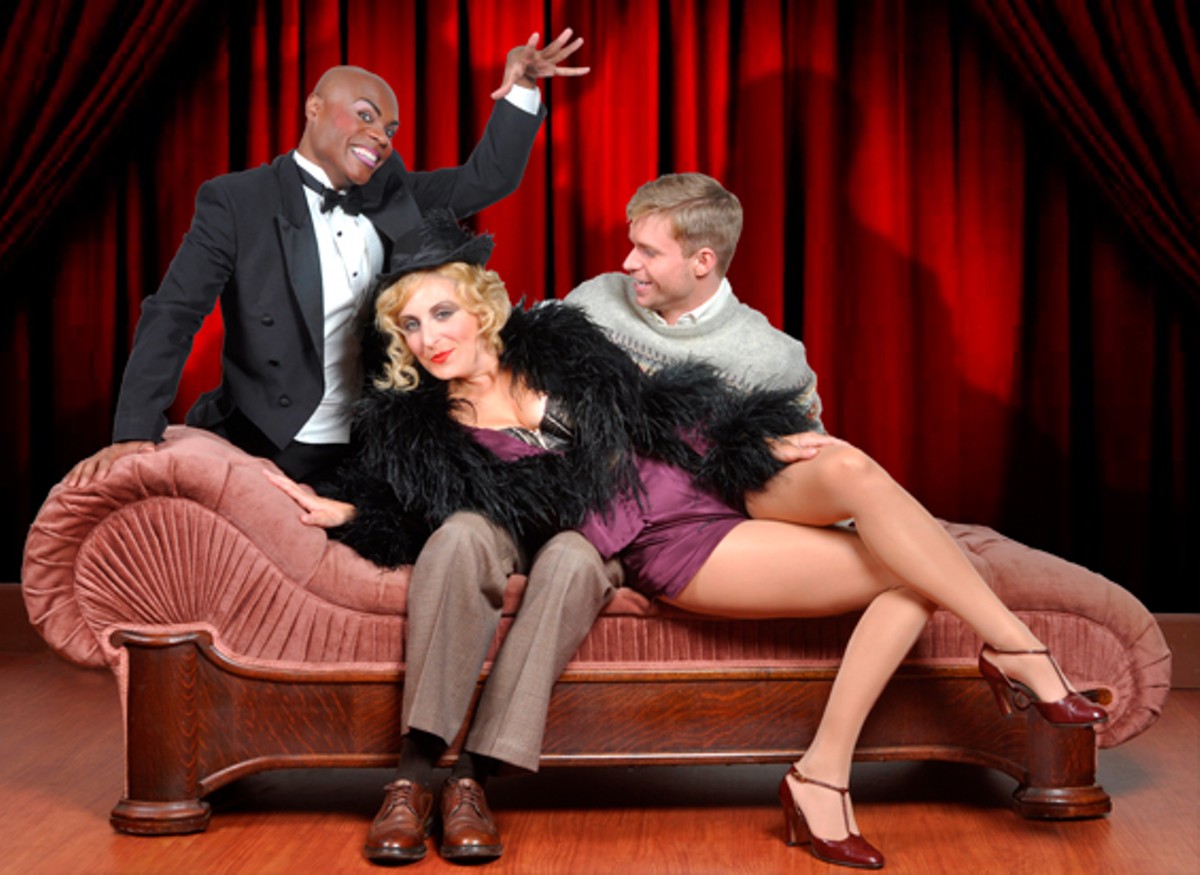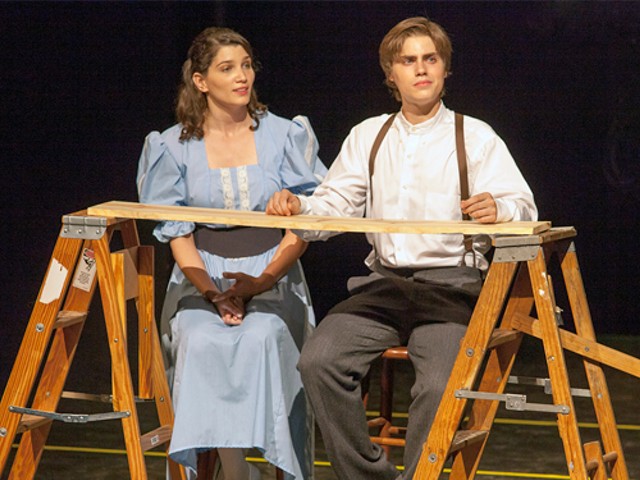So you think you've already seen Cabaret so often, there's no need for another viewing? Think again. At the risk of succumbing to hyperbole, what is happening on the Repertory Theatre of St. Louis stage is extraordinary. Director-choreographer Marcia Milgrom Dodge has built her miasmic production around the musical's reference to its two principal characters, nightclub performer Sally Bowles and obscure novelist Cliff Bradshaw, being "fast asleep" in 1930 Germany as "the end of the world" approached. Dodge has staged an evening of feverish intensity that immerses these sleepy characters into a nightmarish netherworld.
There are musicals like West Side Story in which every comma is protected as if it were Holy Writ. By contrast, since its debut nearly a half-century ago Cabaret has been so often sliced and diced that it's nigh impossible to keep up with who changed what when. Original songs by John Kander and Fred Ebb have been replaced with new ones; the script by Joe Masteroff has been much amended. But the alterations have not hurt the show; maybe they've kept it fresh. Surely this Rep version manages to realize Cabaret's original concept. In 1966 producer-director Hal Prince told this story about wayfarers drifting in the underbelly of Berlin at the dawn of Nazism in order to draw a parallel between the spiritual bankruptcy of Germany in the early 1930s and America in the mid-1960s. Alas, Cabaret continues to feel disturbingly immediate.
The ingenious scenic design by Michael Schweikardt extends the surreal motif. The action never fully leaves the insularity of the bohemian Kit Kat Club. Above the dance floor, an art deco bridge resembles the deck of a sinking ship. Beneath that bridge, behind a swaying beaded curtain a swinging all-girls band is led by the sultry Henry Palkes. The musicians accompany a relentlessly driven ensemble of fifteen performers.
As has always been the case, the Master of Ceremonies remains Cabaret's showiest element. He exists as a kind of Greek chorus to comment in song about what is happening to the principal characters. In 1966 this bravura role made a star of Joel Grey and perhaps threw the musical out of alignment. At the Rep there is no clear division between the plot and the musical numbers at the Kit Kat Club. Here, the Emcee spills into the action, in the same manner that odd characters turn up for no rational reason in dreams. With a set of teeth that could hold their own in Jurassic Park, Nathan Lee Graham instills the cobra-like Emcee with maniacal ruthlessness. Graham's Emcee is a venomous snake that needs to be decapitated.
Michael Marotta is a sweet and gentle Herr Schultz, the aging Jewish fruit dealer whose antidote for the world's problems is to peel a fresh orange. Mary Gordon Murray does beautiful work as Fraulein Schneider, the object of Herr Schultz's affections. Actresses often portray Fraulein Schneider as one of the play's victims. But Murray is no more a victim than is Mother Courage. With an empty smile, this landlady will survive any setback that comes her way. As Sally Bowles, Liz Pearce is already British, so she doesn't have to feign an accent. Her Sally is an endearing loser.
But the great revelation in the Rep production is the restoration of Cliff, the American novelist, to the story's center. In the original source material, Christopher Isherwood's autobiographical Berlin Stories, the narrator-author is central to everything that occurs. But in the musical, the character got shunted aside. Bert Convy, the original Cliff, described the role as "a guy who stands around and watches everyone else get their licks in." Thanks to the commanding performance of Hunter Ryan Herdlicka, that wrong has been righted. Herdlicka delivers a nuanced portrayal of a writer striving to make sense of his disjointed memories even as they are beginning to recede from his mind.
We too might wake up and wonder if what we saw on the Rep stage was but a dream. In time, surely our memories too are doomed to dim. But for the present, Cabaret is here and now, disturbing and indelible.






